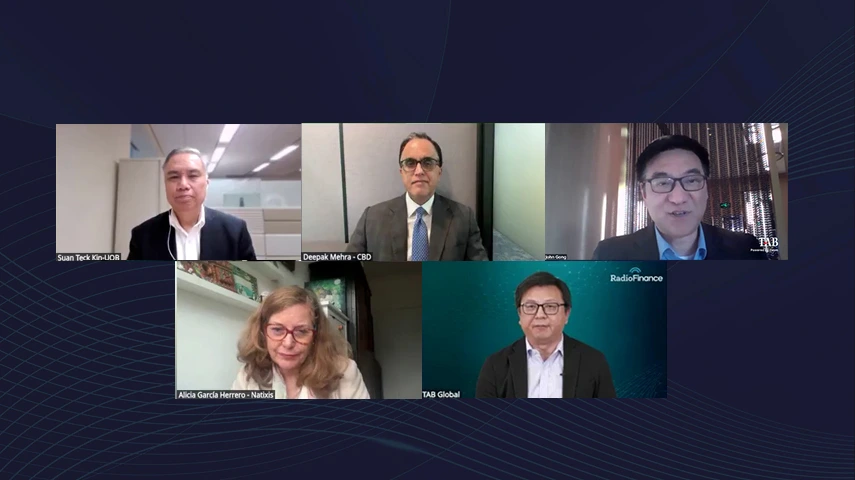In this RadioFinance session, senior executives from financial institutions (FIs) across Asia-Pacific discussed the challenges brought about by data gravity. As ecosystems expand and data volume increases at an unprecedented pace, FIs are making it a priority to design and build the right data architecture for real-time data streams, faster processing and advanced analytics.
Danny Mu, principal analyst at Forrester, presented the findings of a survey among 162 senior managers across FIs in Asia-Pacific on “the future of data agility in the financial services industry.” The survey revealed that improving the use of data and insights in decision-making is a priority for businesses in the next 12 months over growing revenue.
Chalee Asavathiratham, chief digital banking officer at Siam Commercial Bank (SCB), said it is crucial for FIs to rethink data architecture while addressing challenges brought about by data gravity as banking may become digital by default in as early as five years.
Colin Dinn, chief information technology officer at Vietcombank, and John Howard Medina, chief operating officer at Philippine Bank of Communications (PBCoM), shared efforts made by their institutions to build the right structures for handling expanding data. Vietcombank is building a data factory and is looking into how data can be moved into supply chain structure. PBCom, on the other hand, is setting up a data lake this year to integrate banking, market, and consumer data for decision-making.
Andreas Spanner, chief architect, Australia and New Zealand at Red Hat, shared the benefits of a multi-cloud strategy to handle expanding data, noting that this needs a consistent operating model and central policy. Christopher Tan, director of Global Partner Revenue Acceleration at Intel Technology Asia said that as technology architecture becomes hybrid, FIs must have better understanding of networking, storage, and connection.
The session concluded that banks need to redesign their data structures while strengthening data governance to address the challenges brought about by fast growing data volume. As technology architecture also becomes distributed, banks need to have better understanding of data, people, and processes.
Key discussion points :

SEVP, Chief Digital Officer
Siam Commercial Bank

Chief Information Technology and Digital Transformation Officer,
Vietcombank

Chief Operating Officer,
PBCOM

Global Software Partners Director, APJ, Intel

Principal Analyst,
Forrester

Chief Architect Australia and New Zealand,
Red Hat

Senior Research and Consulting Manager,
The Asian Banker


The Asian Banker RadioFinance aims to enhance understanding of the finance industry globally by bringing together thought leaders, industry experts, practitioners and futurists to examine current, critical issues through a discussion facilitated by visual and web-based platforms. Through the use of interactive technology, participants do not have to take time out from their crowded schedules or leave the comfort of their own desks.

As the global banking industry braces for a challenging 2025, it faces economic headwinds, geopolitical tensions, trade realignments, and the push for sustainability and technological innovation

The AWS Financial Services Symposium Singapore 2024 showcased how AI, data, and cloud technologies are revolutionising financial services. Industry leaders from AWS and HSBC shared insights into advancing innovation, regulatory responsibility…

On the eve of the Singapore Fintech Festival 2024, TAB Global and Temenos hosted an exclusive CXO networking reception at Swissotel, The Stamford. The gathering provided a relaxed setting for executives across the industry to connect and…

The Finance Philippines 2024: Leading Practitioner Roundtable on Technology Modernisation for Digital Banking and Lending Innovation explored the critical role of foundational technologies, financial inclusion, identity verification systems,…

On June 21, The Asian Banker held the 2024 Future of Finance China Summit in Beijing, themed "Challenges and Vision". The year 2024 is expected to be a challenging one globally due to intensified geopolitical tensions and increased trade…

By continuing to browse this website, you agree to our privacy policy.